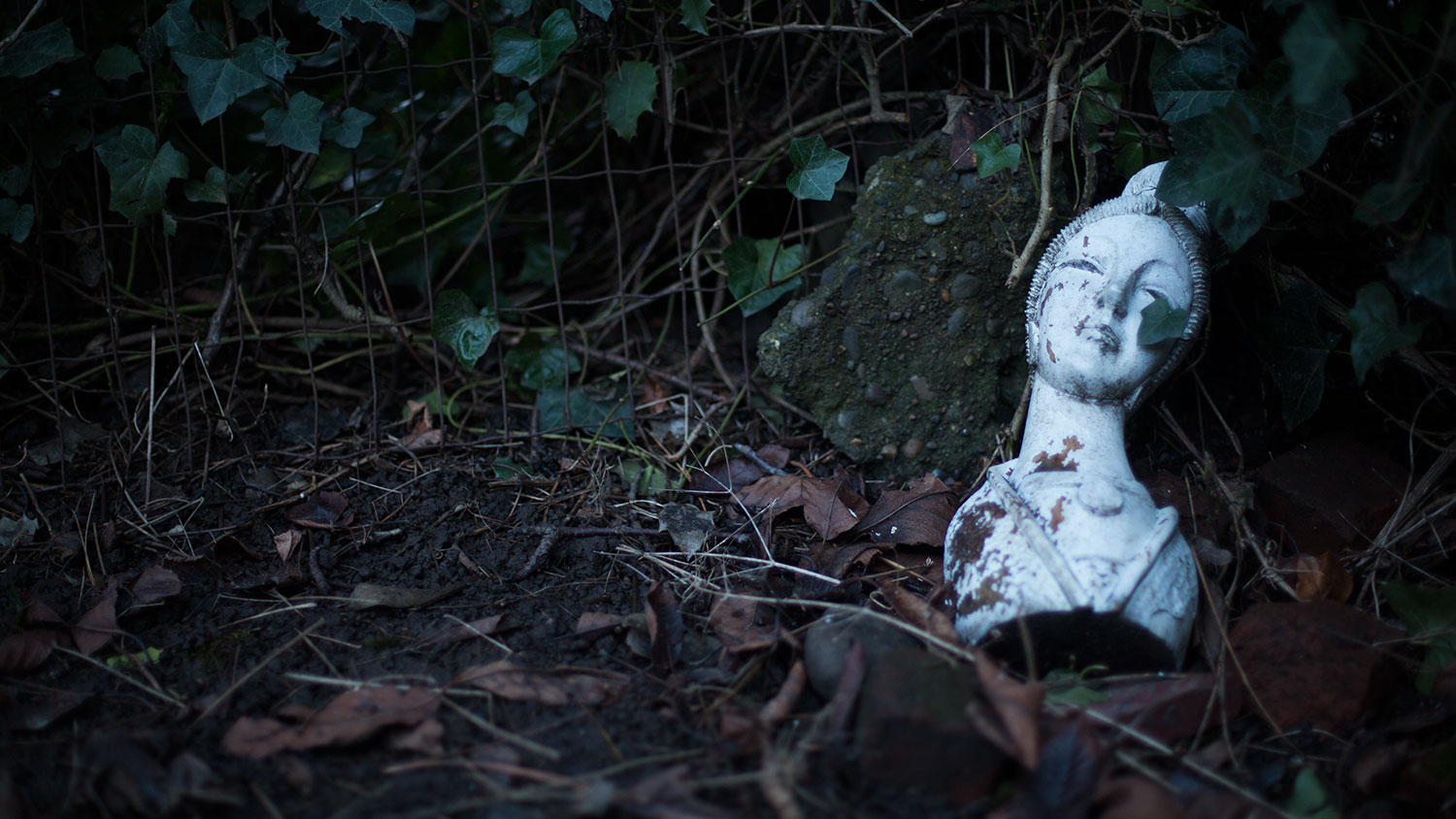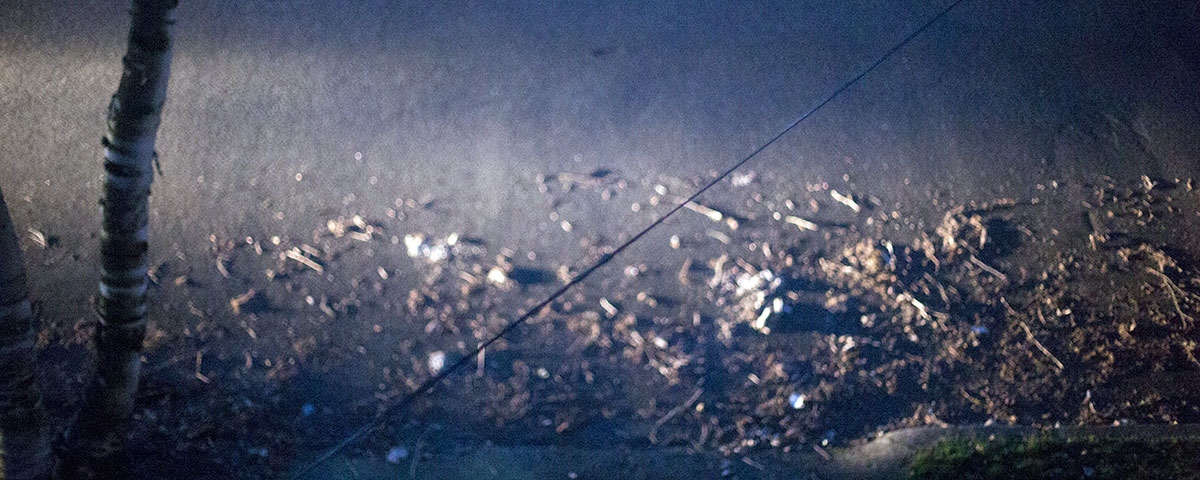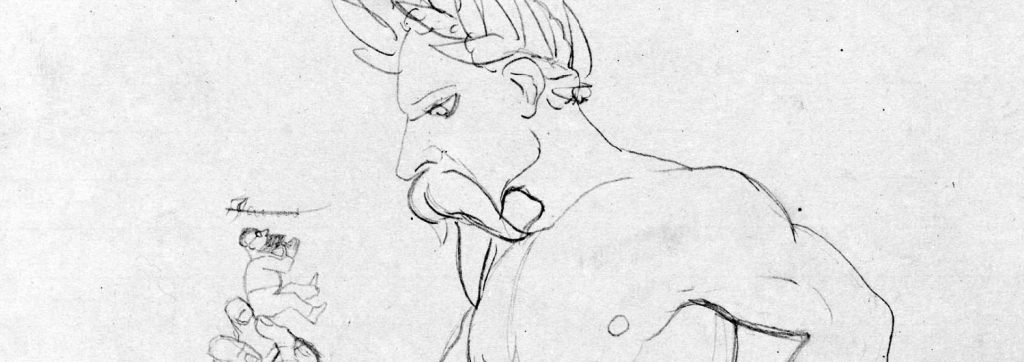January 2017
savoir-faire
1 January 2017, around 7.52.

Tranquil love is not love. The tranquillity of a bear at rest is not true tranquillity. Everything is the bear in motion, dialectical, and every has consequences. Indeed.
The novel is made up of a series of the sort of letters it is generally not prudent to send. Break-up letters: familiar, contradictory, unpleasant. I need you. I detest you. Thank you. How could you? Desire is this. Desire is also that. You are this. I am that. You cheated on me. Other people desire me even if you do not: here’s a list. I am a collection of traits that I am pretending are negative but are really positive evidence of my genius and sensitivity. What about our pet rabbit that died? Wasn’t that sad?
The overall picture is of a muddled personality, inconsistent, angry, confused – the newly born woman lingering on the threshold between choosing to live and choosing to die. One sees hints of how the narrator appears to her community, and it doesn’t match the anguished well of feeling presented to the various recipients of the letters. The sequence of letters – aleatoric – reveal a powerful, uneasy vision of belonging and alienation, in personal relationships, in communities, and within one’s own self.1
- In short, I did not like it. [↩]
those unheard
4 January 2017, around 6.13.

…she was like a book without any pictures. In other words, the kind of person who, unless you brought your whole soul to bear in reading them, would remain forever unknowable (116).
A fall through the ice shapes the story. It is dramatic, inexplicable – and unexplained. The narrator is walking a dog, and then, suddenly, has fallen through the ice, is drowning, as the dog runs along the shore barking. How she escapes, or if she escapes is unclear. Being of a gloomy character, I prefer to think she does not: the language of sinking, of being sunk, of being overwhelmed, of drowning, pervade the novel – it begins with the rush of music, of feeling, of memory, before the narrator breaks the surface. Yet the internal evidence suggests she does, that the accident set in motion a train of memories, shocked the narrator into thinking about things she would rather avoid, but that she does escape from the depths – even if survival seemed somewhat unsatisfactory.
It is difficult to think about A Greater Music without thinking also of Last Words from Montmartre. The connection lies not in the similarity of their subject matter – queer women enduring a breakup in a foreign country – but in the way they focus their attention, the glimpses of the cultures to which the narrators will never quite belong, but against which they dash their passions and their hopes, as well as the ways in which the interior music, the interior life, are never successfully translated into a foreign language, into a foreign mind. Even the names of gatekeepers from the periphery – Tarkovsky, Kundera, and other cultural icons of that sort, who excel at teaching outsiders how best to look at the spectacle of late twentieth-century Europe – become empty and lose some of their talismanic power, as indeed do many things one clings to for comfort.
Ultimately, ‘learning a foreign language’ is too simplistic an expression for a process which is more like crossing a border; similarly, an individual’s development as a human being is only possible through language, not because language is our only means of communication, but because it is the only tool precisely calibrated for the application of critical thought. But to me, these thoughts of M’s were nothing but phantoms. A mother tongue isn’t a border that can just be crossed, not even with the strongest will in the world. Even after fully mastering a foreign language (if such a thing is ever possible), your mother tongue still acts as a prison for your consciousness – this wasn’t a view that M ever expressed in so many words, I but I knew that it was true. The fact that my mother tongue was different from M’s caused me unbearable grief (61).
and another thing
7 January 2017, around 18.27.

tædium
8 January 2017, around 5.31.

It has been unexpectedly cold, and on that particularly evening we were preparing for a very cold weekend, with frost and potentially snow. The puddles from recent rains had frozen, which is a rare thing – if I had a better memory, I could probably count on one hand the number of times this has happened while I lived here. The weekend promised to be a sort of punctuation mark in the long, tortuous syntax of winter.
Something about the evening put a period to a sense of expectation. The past few months have been spent waiting for a book to come in the post. Many the afternoon was spent sighing – ‘my life is dreary, / it cometh not’ – and hoping that a small, readable copy of The Wealth of Nations would soon be near at hand. That evening, though – observing the slow ticking of the clock and the day sloping toward his western bower – I finally accepted that the book would not, will not come. The night promised to be dreary, and I would have to find something else to read.
praeterita
10 January 2017, around 6.32.

It has become the favored place to go for a stroll. It is quiet. The world passes through slowly, the shifting seasons providing the most dramatic changes – fallen branches, frost heaves, holly berries, and flowers in spring. One sets external concerns aside; even the most tenacious anxiety or care has been, by the time one is ready to leave, forgotten.
the will to be peeved
12 January 2017, around 6.11.

I don’t quite remember what led me to read William James. It could have been PF talking about him, or the mention in The Dead Ladies Project, or it could have been something I’ve forgotten about entirely. In any case, I settled in and read Psychology: Briefer Course, which is as charming a psychology textbook as one is likely to find, and, though my interest has been sorely tried by The Will to Believe, I daresay I will continue my way through the complete works.
To support this project (if project it can be called, which involves reading doggedly but without a plan), I thought to read a biography of James and turned to my local library. William James: In the Maelstrom of American Modernism seemed a bit too dramatic, Genuine Reality: A Life of William James was checked out, so I borrowed William James: His Life and Thought, by one Gerald Eugene Myers.
I did not realize, when I borrowed William James: His Life and Thought, that Myers would dispose of the ‘life’ in a scant fifty-three pages and would spend the remainder of the six hundred odd pages of the volume attempting to ‘explain’ the ‘thought’ of one of the most readable philosophers in English to – one must assume (as Myers does) – an audience of idiots (who ‘may not always have comprehended his meaning’ (1f.)). If even I can catch the philosophical import (and some of the foreshadowing of phenomenology, etc.) in James’s writing, it cannot be too deeply buried. But then it is always a pleasure to patronise, not to be patronised, so I suppose I must excuse Myers. I will, however, refuse to read his book, which is my loss, I’m sure.
Montaigne 3.10
13 January 2017, around 17.22.
Men let themselves out to hire; their faculties are not for themselves, but for those to whom they have enslaved themselves; ’tis their tenants occupy them, not themselves. This common humour pleases not me. We must be thrifty of the liberty of our souls, and never let it out but upon just occasions, which are very few, if we judge aright. Do but observe such as have accustomed themselves to be at every one’s call: they do it indifferently upon all, as well little as great, occasions; in that which nothing concerns them; as much as in what imports them most. They thrust themselves in indifferently wherever there is work to do and obligation, and are without life when not in tumultuous bustle: In negotiis sunt, negotii cause (Seneca, Ep., 22).1
It is not so much that they will go, as it is that they cannot stand still: like a rolling stone that cannot stop till it can go no further. Occupation, with a certain sort of men, is a mark of understanding and dignity: their souls seek repose in agitation, as children do by being rocked in a cradle; they may pronounce themselves as serviceable to their friends, as they are troublesome to themselves. No one distributes his money to others, but every one distributes his time and his life: there is nothing of which we are so prodigal as of these two things, of which to be thrifty would be both commendable and useful. I am of a quite contrary humour; I look to myself, and commonly covet with no great ardour what I do desire, and desire little; and I employ and busy myself at the same rate, rarely and temperately. Whatever they take in hand, they do it with their utmost will and vehemence. There are so many dangerous steps, that, for the more safety, we must a little lightly and superficially glide over the world, and not rush through it. Pleasure itself is painful in profundity…
- Dicentur tibi ista, si operae pretium habebit perseverantia, si nihil indignum bono viro faciendum patiendumve erit; alioqui sordido se et contumelioso labore non conteret nec in negotiis erit negotii causa. // ‘Words like these will indeed be spoken to you, if only your perseverance shall have an object that is worth while, if only you will not have to do or to suffer anything unworthy of a good man; besides, a good man will not waste himself upon mean and discreditable work or be busy merely for the sake of being busy.’ (Seneca, Ep. 22.8, Richard Gunmere, trans). [↩]
Crambe repetita (45)
15 January 2017, around 6.08.
At 6:30 in the morning I boiled myself a bowl of instant rice noodles. I added a small piece of French cabbage (the last of three heads of cabbage that Bunny had eaten, and possibly the cause of death), a third of a can of tuna, half a can of mushrooms, an egg, and the leftovers from last night’s sweet-and-sour fish at Yongyao’s restaurant. I stood in the kitchen, washed the pot I’d used to heat the fish, and peeled a large cantaloupe, and ate it while leafing through the books that my roommate had planned to sell and had left outside the kitchen. Ever since returning from Tokyo, I would often go to Camira’s place for dinner. She’s a close friend and can lift me out of any depression. When she cooked she would often put on an air of authority and say, Cuisiner c’est l’invention! Then she’d mix together whatever random things were left in her refrigerator. I smile when I think how cute she is. Now I’ve begun cooking more too, using her method, blindly mixing together ingredients while murmuring to myself, Cuisiner c’est l’invention! What’s contagious in a friendship is truly frightening.
Citation (56)
17 January 2017, around 6.40.
In education, the instinct of ownership is fundamental, and can be appealed to in many ways. In the house, training in order and neatness begins with the arrangement of the child’s own personal possessions. In the school, ownership is particularly important in connection with one of its special forms of activity, the collecting impulse. An object possibly not very interesting in itself, like a shell, a postage stamp, or a single map or drawing, will acquire an interest if it fills a gap in a collection or helps to complete a series. Much of the scholarly work of the world, so far as it is mere bibliography, memory, and erudition (and this lies at the basis of all our human scholarship), would seem to owe its interest rather to the way in which it gratifies the accumulating and collecting instinct than to any special appeal which it makes to our cravings after rationality. A man wishes a complete collection of information, wishes to know more about a subject than anybody else, much as another may wish to own more dollars or more early editions or more engravings before the letter than anybody else.
Montaigne 3.11
20 January 2017, around 17.41.

Truth and lies are faced alike; their port, taste, and proceedings are the same, and we look upon them with the same eye. I find that we are not only remiss in defending ourselves from deceit, but that we seek and offer ourselves to be gulled; we love to entangle ourselves in vanity, as a thing conformable to our being.
In his essay ‘Of Cripples’, Montaigne tells the story of three young people who convince the people in their town that the village is haunted. The youngsters hid in various places (such as under the altar) and counterfeited the voices of spirits, promising the day of judgement and suchlike. They were found out, Montaigne says, and were put in prison, where they ‘are like shortly to pay for the common folly; and I know not whether some judge will not also make them smart for his.’ So they wait there, poor devils, in the prison of history, while we, poor devils, remain here, ignorant of their fate – and our own.
Montaigne 3.12
27 January 2017, around 18.36.

from Lavater’s Lectures on Physiognomy
It is a great thing to have been able to put such order into ideas as pure as those of a child that, without altering or stretching them, he produced from them the finest results of our mind. The mind he shows us is neither exalted nor richly furnished, only healthy, but assuredly with a health that is very brisk and sound (510).
‘Of Physiognomy’ holds tightly to its course, viz., that character is, in a sense, destiny, and is shaped by one’s appearance as well as one’s learning. Montaigne write of the civil unrest, of unsteady states, of war – and frankly acknowledges that he is ‘pleased to be a spectator’ to such things (519). This plays into his self-deflating comparison with Socrates, which charms – and holds up an unflattering mirror to the reader (should the reader be so ‘fortunate’ as to live in interesting times).
What if knowledge, whilst trying to arm us with new defences agains natural misfortunes, has rather impressed our mind with the weight of them than furnished it with arguments and sophistries to shelter us from them? They are sophistries indeed, with which she alarms us to little purpose. Look at even the wisest and most concise of writers, how many frivolous and, if we examine them closely, bodyless arguments they scatter around a single good one. They are but wordy quibbles, made to deceive us (512).
